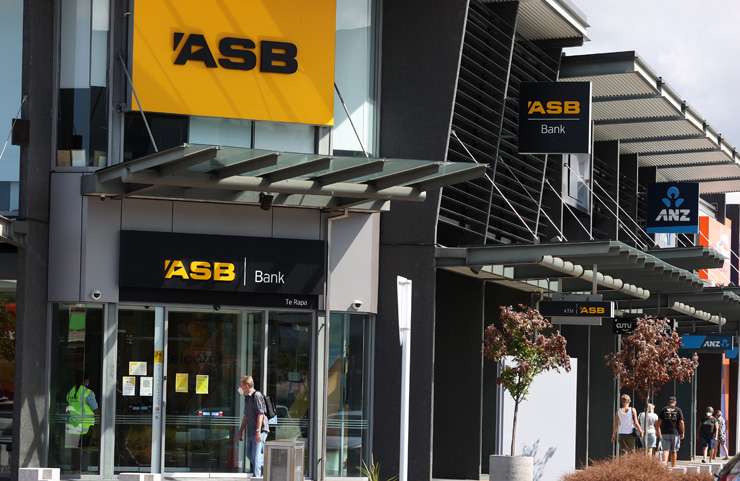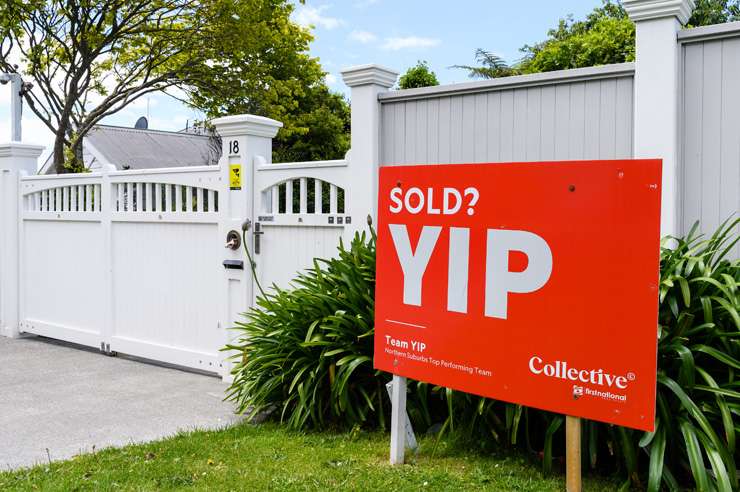Home buyers who find themselves shut out of the mainstream mortgage market are increasingly taking up “sin bin” loans, brokers have told OneRoof.
Mortgage broker Jonathan Battersby said that buyers who can’t get bank approval for a mortgage would often turn to non-bank lenders for financing at sub-prime rates.
“A main bank [may have] declined their loan based on their ability to manage their money. What we might do is place them with a non-bank [lender] for 12 months on, say, an interest-only term so that they build up a history of making payments on time every time.”
After 12 months the borrower would refinance with a mainstream bank or take up a prime rate with a non-bank lender.
Start your property search
“It’s like being yellow-carded in sport,” Battersby said. “You're off to the sin bin for 10 minutes. You get yourself together and then come back once you've figured out what you’re doing.”
He said the “time-out” gave clients some breathing space if they found themselves in a difficult situation. He cited as an example clients who went unconditional thinking they would get a mortgage from the bank but didn’t, and a couple who found themselves dropping a salary because of unexpected childcare challenges.
“People need some breathing space,” says Battersby. “The flexibility that non-bank lenders offer gives people that breathing space to be able to regroup and think ‘right, what’s our next move?’ ”
Sometimes people are excluded from mainstream mortgages because they are self-employed or over a certain age.
Battersby said he had one older client who wanted to buy out the other half of a deceased estate to let as a rental property. If the banks don’t touch it, Battersby said he knew of a non-bank lender which would be happy to lend for terms of up to 90 years of age.
Changes to the Credit Contracts and Consumer Finance Act (CCCFA) at the end of last year have driven previously “bankable” borrowers to non-bank lenders. The Government relaxed the CCCFA regulations in July and this week announced further changes to take effect in March.
But many of the banks’ assessors were still turning down loans that they might have approved before December 1 last year, Battersby said.
Loan Market mortgage adviser Craig Pettit said time-outs with non-bank lenders on sub-prime rates were akin to “sitting on the naughty seat”.

Changes to the CCCFA last year led to a tightening of credit criteria by mainstream banks. Photo / Fiona Goodall
He said one of his clients found himself in a tight spot after selling one home and going unconditional on another purchase. “The couple had been to the BNZ for finance and were declined. So they were going to be homeless, and potentially lose their deposit on the new property.”
He said the couple had had nine dishonours over three months with a revolving credit mortgage, simply because they didn’t understand fully how their loan worked. “They did not realise their revolving credit facility had a reducing limit, so they were actually over the current limit when the automatic payments were reversed,” he said.
“A year later they had kept their noses clean and demonstrated 12 months of satisfactory loan repayment history and I was able to refinance them with a mainstream bank, fixed for 2 years at 5.95% and they received cashback, which covered their legal fees and some.”
Loan Market adviser Lisa Meredith dealt with a client who had to spend six months with a non-bank lender in order to take up an unexpected opportunity to buy the rental property he was living in. “The client had a salary job and also some self-employed income on the side, hairdressing from home. His financials weren’t in order and he didn’t meet bank servicing requirements during lockdown, but had the opportunity to buy the property he was renting," she said.
“We were able to get him funding to buy his home via Avanti Finance. Then within six months, post-lockdown, he received a pay increase and had financials in order so we were able to [refinance] him to a mainstream lender.”
iLender adviser Jeff Royle had a UK-based, self-employed Kiwi looking to move his work back to New Zealand, which meant he ended up in time-out from the main banks until the new business was up and running. “No bank would touch him until there were two years of financials [accounts] available.” Two years later Royle arranged a refinance back to a bank.
Another example, said Royle, was a matrimonial split where the wife’s income wasn’t sufficient to buy the property according to the bank rules. Royle placed that loan with a non-bank lender with half of the loan capitalised, meaning she only had to pay interest up front on the other half. “We then refinanced [her] to the bank after 10 months when the 21/22 Financials showed the ability to pay.”

A sale sign outside a home in Wellington. Buyers who go unconditional can find themselves in a tight spot if the banks turn them down. Photo / Getty Images
Quite often home buyers have found to their horror that they can’t borrow after going unconditional on a property. Battersby dealt with one such case where a couple had been to a property investment seminar and decided to buy an investment property. The pair only went to the bank after going unconditional on the sale and purchase agreement.
“They had a really bad history of repaying their existing mortgage on their owner-occupied property and didn’t have the income to support the new lending based on business not going too well through the Covid period,” Battersby said.
“We eventually found them a loan with a private lender on a 12-month term with interest-only payments so they [get] a nice 12-month history of repaying their mortgage on time every time. At the end of that 12-month period one of our near banks [top-end non-bank lenders] will hopefully look at them and take them on a 30-year principal and interest term.”
Most non-bank lenders don’t deal with the public directly. Instead buyers need to use a mortgage adviser. Some non-bank lenders pay commission to the advisers as banks do. If they don’t the adviser may charge a fee that could be 1% of the loan. That information was always provided upfront, Battersby said.
Non-bank lenders are not subject to the Reserve Bank of New Zealand’s (RBNZ) loan-to-value ratio rules. In theory that means a buyer might not need the same size of deposit. The non-banks, however, are unlikely to take risks on high-risk borrowers with very low deposits.
Many of the non-banks have different types of loans not available at main banks. Most have a “prime” mortgage for borrowers who would most probably qualify for a bank loan. They also have what’s often called “near prime”.
Some of those loans cater to people with impaired credit records, or those who have been discharged from bankruptcy. Other “impairments” to credit records might include a number of mortgage payment arrears in the past, or other judgments or defaults. The more the impairment or the lower the deposit, the higher the interest rate will be.
Non-bank lenders also often lend to self-employed people who may not have all the documentation a bank needs, such as sufficient years’ worth of GST and IR4 tax returns. These loans may be called lo-doc or alt-doc or similar names.
Clients who spend a year on a sub-prime loan at a higher interest rate, don’t always remortgage back to a bank once they’ve done their time, said Battersby. Lenders such as Resimac, Bluestone, Avanti Finance and Pepper Money’s regular prime lending rates are often no different to the banks and sometimes their new-found clients choose to stay once they can remortgage onto a prime rate.
Some of those floating rates are lower than offered by the banks. Currently Pepper Money’s floating rates range from 5.29%, Liberty Financial 5.34% and Resimac 5.59%.















































































